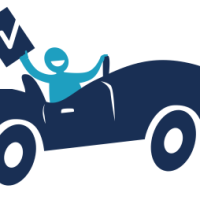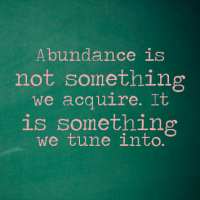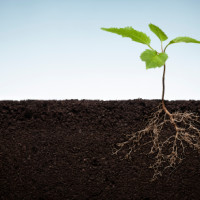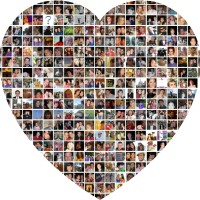 Today I took and passed my driving exam and on Sunday will receive my Israeli driver’s license! I’m so happy and relieved to have successfully completed this.
Today I took and passed my driving exam and on Sunday will receive my Israeli driver’s license! I’m so happy and relieved to have successfully completed this.
A benefit for those making aliyah is they have the option of converting their US/foreign license to an Israeli license. This is a big benefit since getting a license from scratch in Israel is a very expensive proposition. We began the first steps two years ago, then life got in the way and after a long delay finally finished the process this week.
Here are the steps to convert your foreign license to an Israeli license: 1) Go to an optician and ask for a form called the tofes yarok (green form) and fill it out. Once you’ve filled it out, the optician will photograph you, do a quick eye exam and fill in his section of the form. This costs about 50 shekels.
2) Next, take the tofes yarok to your doctor. He will fill out their part of it; when we did this two years ago the fee for this one minute of their time was 90 shekels. I think if you have a more expensive level of health insurance, it’s free.
3) Take your tofes yarok that is now all filled in by everyone, your Israeli identification card and your up to date foreign license to the Ministry of Permits in the regional area. (We went to Haifa; they don’t have a local office in Karmiel.) They stamp your paperwork and give you a form that you then give to your driving instructor; I don’t remember how much this cost.
I was at the end of pregnancy with Yirmiyahu when I did this and was concerned that I wouldn’t be able to complete the rest of the licensing process before I missed the deadline, which I thought was a year after our aliya and was only ten weeks away. The official who stamped our paperwork reassured me I’d have enough time to have this baby and even another one before my time would run out. 🙂
You have three years from the time you make aliyah to convert your license; you can drive in Israel using your foreign license for the first year. Your eye exam is valid for two years after you do it, so get the rest of the paperwork done within that time or you’ll have to get the exam again, which I believe would mean starting the process over. Good thing we had this much time because life was soon after that to become extremely busy and getting our license went down to the bottom of the priority list – our eye exam paperwork was only valid until the end of May.
4) Now it’s time to schedule lessons with a driving instructor. In Israel there’s no such thing as driving with a permit with a licensed driver. Unless you are in your first year of being in the country in which case you can drive on your own, your driving practice will have to take place with an instructor. Yes, this gets expensive pretty quickly! So try to get your license in the first year because it will be easier and cheaper for you to be able to practice without having the pressure of an instructor critiquing your every move of the steering wheel.
I was really happy with our instructor, who is the head of a driving school in Karmiel with 63 drivers working under him, and has forty years experience teaching driving. He also smoothed the way with the rest of the paperwork from this point and on so that simplified things for us. We got a discounted price on our lessons since dh and I took them together, so it was 112.50 shekels a lesson for each of us instead of 125 shekels. We took a combined total of ten lessons (six for me, four for dh) so that ended up being a nice savings of 250 shekels.
People often complain that getting a license in Israel is a money making racket and that instructors and the Ministry here are in cahoots to make you spend as much money as possible. I assumed this was true until I took lessons. I expected I would only have to take one or two lessons, which is what NBN recommends. This – in my opinion – is a big mistake and why so many people fail their driving exams. They don’t take enough lessons and don’t get really familiar with the rules of the road here – and the testers can tell. But the drivers who are used to US road rules can’t see what they’ve done wrong and think the tester failed them unfairly.
When I began taking lessons, I was honestly a bit indignant that after my second lesson the instructor said that I’d need a couple more lessons. For crying out loud, I’m a driver with many years experience and a perfect driving record! It wasn’t until my fourth lesson that I had learned enough to understand what my driving instructor saw was wrong in my driving earlier on. It took me that long to recognize how much I hadn’t known.
So here’s what I realized. I’m a great driver in the US. I wasn’t a great driver in Israel. Neither are most of the people who move here. I had to get my ego out of the way and realize there were things I objectively needed to learn if I wanted to be as good a driver in Israel as I was in the States. I think this is where a lot of people are getting stuck. They think they know how to drive so the lessons are just a formality, and that they should be able to walk in to the test after a lesson or two and pass.
Unless someone has his own car and is able to practice a lot on his own, this isn’t going to happen. Even if someone does have a car, he needs lessons to make sure he knows the local rules of the road. This is a different country and the rules are different. Things that are allowed in the US (eg making a right turn on a red light) are against the law here. In my last driving lesson, I entered an intersection when the light was green and made a right turn on a yellow light – my instructor told me that wasn’t acceptable. I wouldn’t have expected that to be a problem. Okay, you live and you learn!
My driving experience is with minivans and full sized passenger vans – for the nine years before moving here I was driving a 12 passenger heavy duty van. My instructor’s car was a very sensitive European compact European. It is SO sensitive. I’ve driven regular cars but nothing like this. You hardly have to tap on the breaks to make it stop, and if you press any harder the vehicle jerks. Slamming on the breaks – which is easy to do by pressing on the brakes the way you would in any American car – makes you look like a very, very haphazard and overreactive driver. There were other things I had to get used to, like when the car automatically decelerated going downhill, which was kind of disconcerting to me since I was losing power instead of gaining speed.
My biggest problem was that I made turns into one way streets from the wrong lane (when coming from a one way street) or into the wrong lane. This was extremely frustrating to me, since the one way streets I was turning from were generally 1.5 lanes wide and the streets I was turning into was 1.5 lanes wide, so how much of a difference could it really make? You end up about in the middle anyway, right? It’s not like there’s a safety issue. This was a problem and I would have failed my test if I hadn’t gotten clear on when you turn into which lane, and what was considered a one way street; once I understood it I realized it wasn’t the subtle difference I originally thought it was.
Another issue were traffic signs. Since they look different than signs in the US, seeing them didn’t trigger the experienced response that a sign that meant the same thing in the US would. I needed practice noticing them, recognizing what they meant and driving accordingly. The driving test is 425 shekels per person (we got a discount and paid 375 instead), and my dh and I agreed we’d rather pay for a couple more lessons than have to pay for a second or third driving test. As it turns out, our instructor had a very good sense of our readiness level, and when we each felt ready was the same as when he determined we were ready. His goal was to teach us well so that he was sure we would pass. And he succeeded.
We finished our tests at 11:40 am, and our instructor called us with the results at 4:30 pm. Since tomorrow is Friday and government offices aren’t open, our licenses will be prepared on Sunday and he’ll bring them to us.
As I mentioned earlier, getting a license from scratch in Israel is a very expensive proposition – there are a minimum of 28 lessons required – so it’s really worth it to take advantage of the license conversion benefit while you can, even if like us, you don’t have a car. it still wasn’t cheap – together we paid somewhere between 2200 – 2500 shekels for our license conversions. We’re really glad we got this done before our time limit on the conversion ran out!
Avivah






